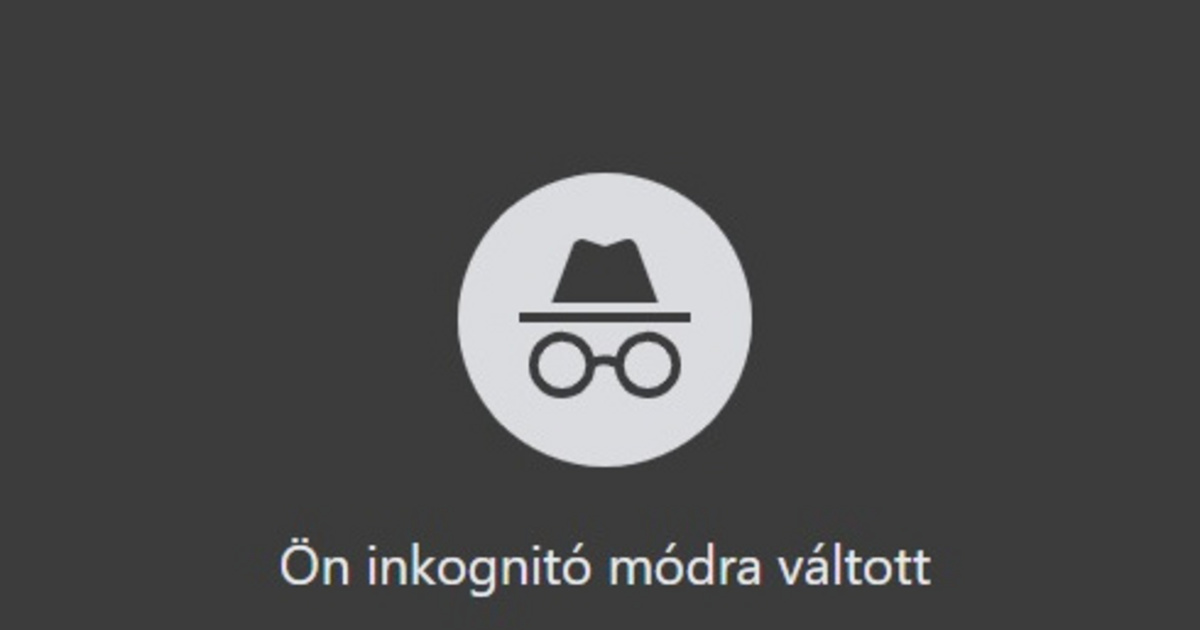Google has updated the description that appears when you open a Chrome incognito window. The expanded description first appears in the developer release of Google Chrome version 122.0.6251.0 Canary with the aim of clarifying that various online services, including Google, collect data about user behavior even when using incognito mode.
The reason for the change is the filing of a class action lawsuit against Google.
Because people believed based on the name and description of the incognito window that they could actually surf the web in incognito mode without being recognized or tracked. The company closed the case with an out-of-court settlement, thus making it clear that there was no suspicion of cover-up.
The Hungarian version of the description currently reads as follows:
You can now browse privately so other people using your device can't see your activities. However, downloads, bookmarks, and reading list items are saved.
This is supplemented by the following sentence (translated from English by the editor)
The pages you visit or services you use – including Google – can still collect data about your activity.
The essence of incognito mode is that the browser does not record the visited page and its cookies in the history, and they can be obtained, for example, when searching for and ordering a birthday gift, or in case someone watches a funny goat video on YouTube, Without later logging into their account and the recommendation algorithm will bombard you with aggressive goat content.
From the opening message of Chrome's incognito window, it has been revealed so far that a home ISP can know a user's online activities; Not at home, at work, at school, or where we currently have internet. Those who need more serious anonymity than this can use the Brave or Tor browser and a virtual private network, a VPN.














































